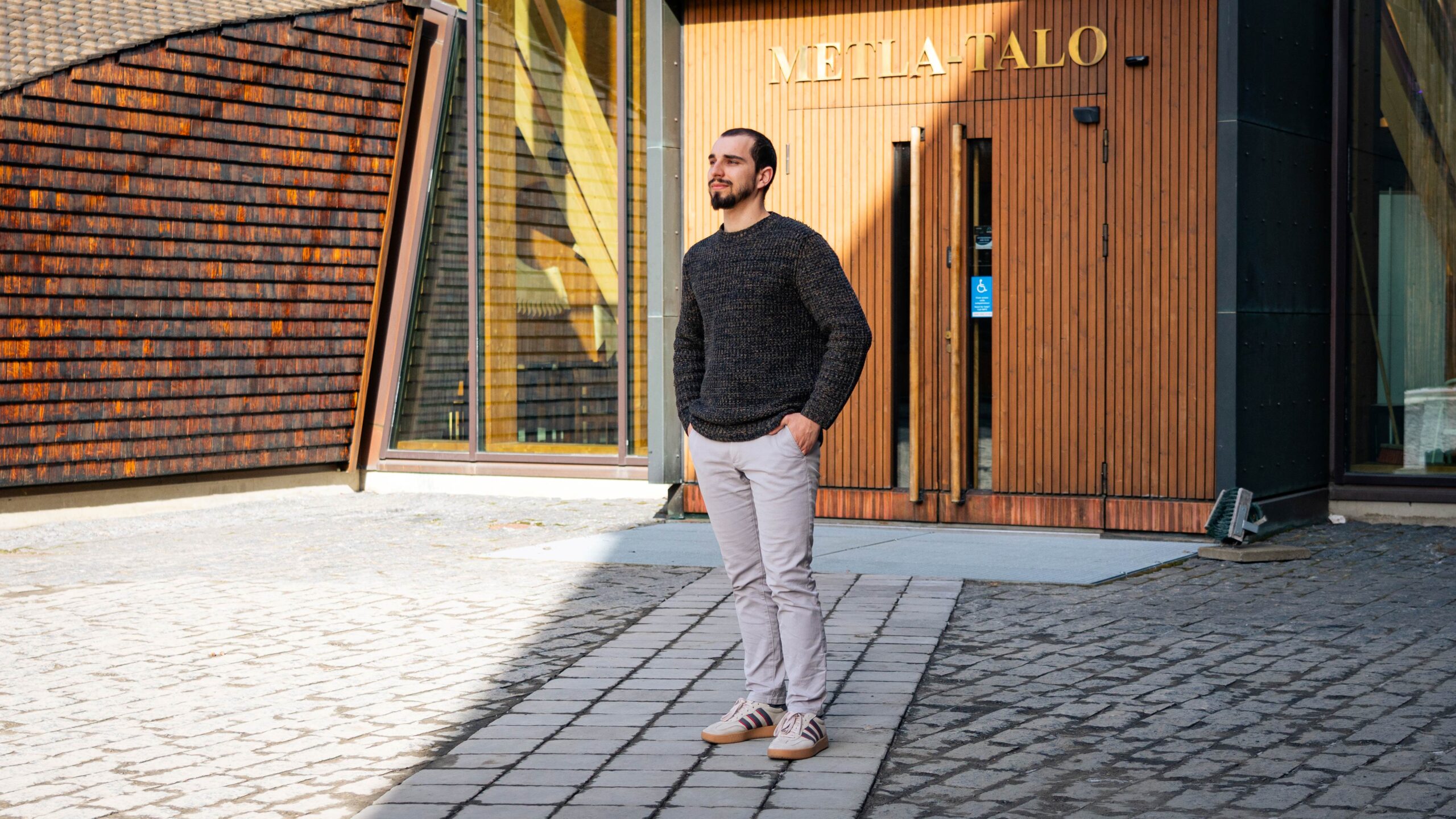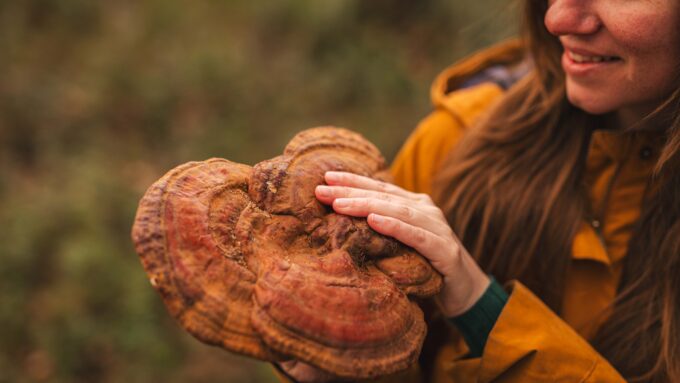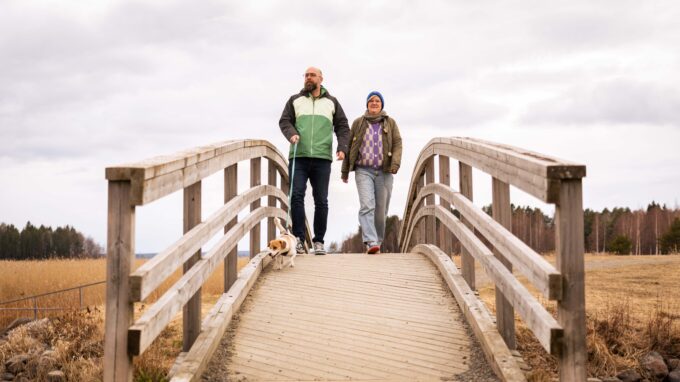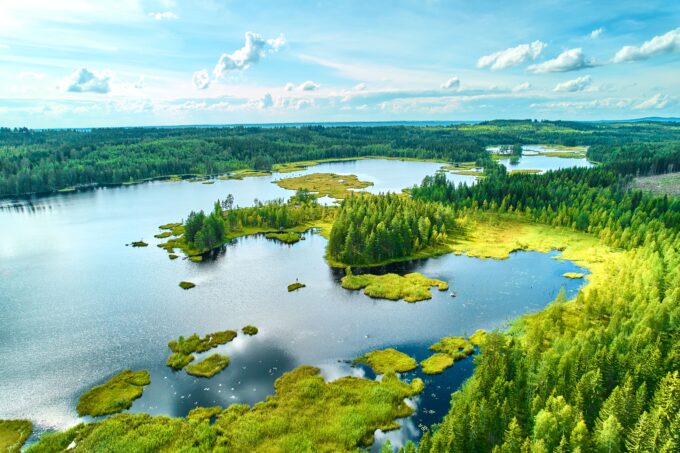Borja García Pascual, who moved from Valencia, Spain, to Joensuu, began his career in forestry eight years ago. Over the years, he became interested in remote sensing and artificial intelligence, eventually focusing on them.
Remote sensing is a method of collecting information about the Earth’s surface without direct contact. Data is obtained using satellites, airplanes, drones, or other devices equipped with various sensors, such as cameras, laser scanners, radars, or thermal cameras.
My plan was to go to Australia, but then the COVID-19 pandemic came and changed everything
It was a close call, however, that Pascual, who now works as a researcher at the Natural Resources Institute Finland (Luke), did not end up in Australia instead of Finland. An Australian professor he knew tried to persuade the talented researcher to join him.
“My plan was to go to Australia, but then the COVID-19 pandemic came and changed everything,” Pascual recalls.
In the end, the professor himself moved to Finland and Joensuu – and Pascual followed suit.
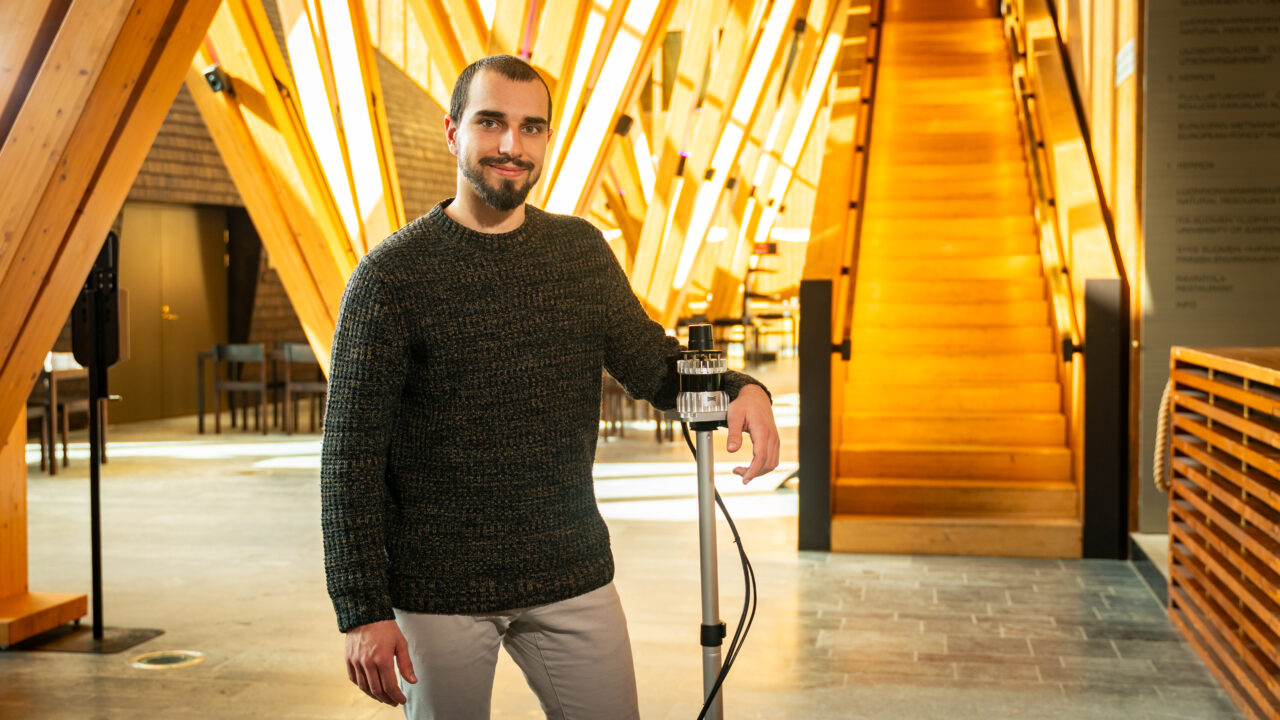
Welcomed by ‑38°C Cold
Looking back, it seems that fate was on their side – both Pascual and his wife have enjoyed living in Joensuu. From the very beginning, the city felt like a place where they could stay for a long time.
However, the couple’s resilience was tested by the weather during their first days in Finland.
“When we arrived in December 2023, it was ‑38 degrees Celsius. That was quite a shock. In Valencia, winter temperatures rarely drop below ten degrees Celsius.”
Fortunately, the couple adapted quickly.
From the very beginning, the city felt like a place where they could stay for a long time
“Getting used to things was easier than we expected.”
Pascual admits that they had some preconceptions before moving to a small town in Eastern Finland, but those concerns turned out to be unnecessary.
“Joensuu had many more services available than we had expected. That was a nice surprise.”
Pascual describes Joensuu as a peaceful and beautiful city. The safety of the city is also a plus, and the hospitality of the locals has helped with their adaptation.
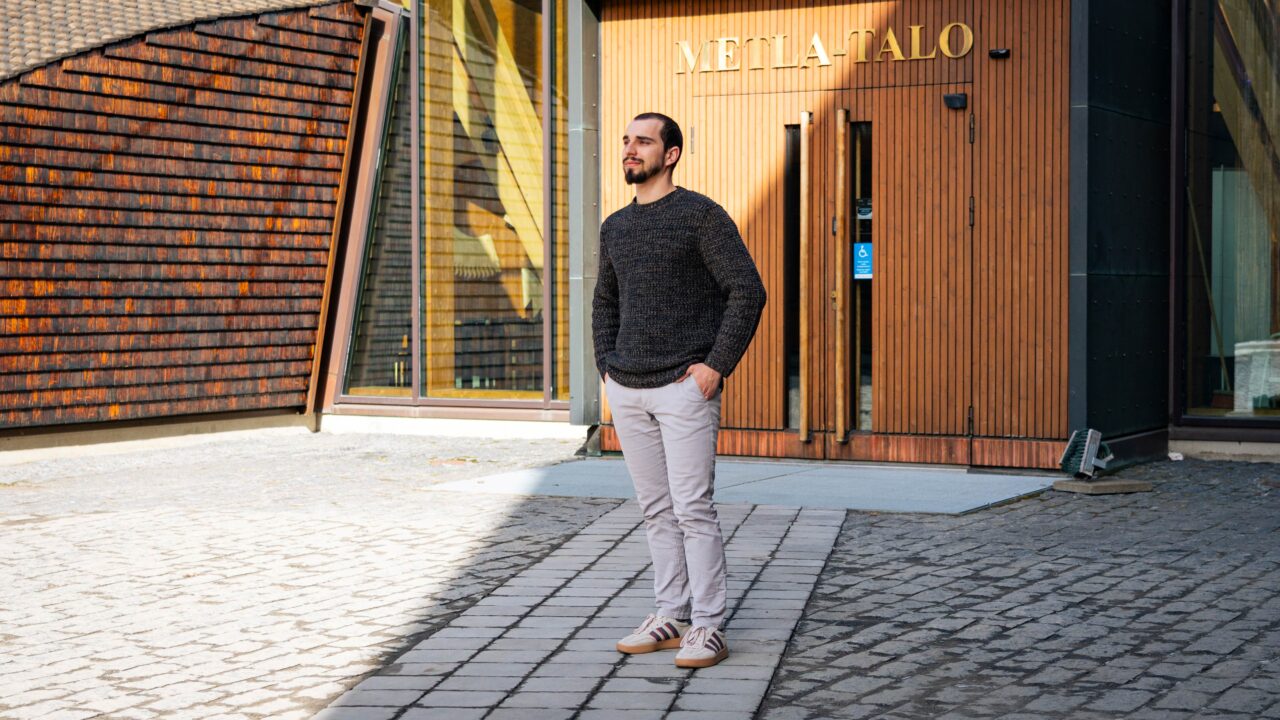
Work Stays at the Office
Pascual sees clear differences between work cultures in Spain and Finland.
“I worked for two years in a Spanish forestry research and development company. The job itself was similar to what I do now,” Pascual says.
In Spain, workdays were often long, and work followed people home.
Everyday life runs smoothly here: commuting is short, and the facilities at the Metla Building in Joensuu are modern and high-quality.
“Compared to Spaniards, Finns have a better understanding of when to stop working and how to separate work from free time. That is a very good thing. Colleagues also know how to support each other when needed.”
Another advantage of working in Finland is the generous vacation time.
“Having time to rest helps keep up the energy. Everyday life runs smoothly here: commuting is short, and the facilities at the Metla Building in Joensuu are modern and high-quality.”
“Polar Bears – the Best Place Ever”
One sign of Pascual and his wife adapting to life in Finland is their enthusiasm for winter swimming.
“Joensuun Jääkarhut (Joensuu’s ‘Polar Bears’ winter swimming club) is the best place ever. It offers a truly Finnish experience.”
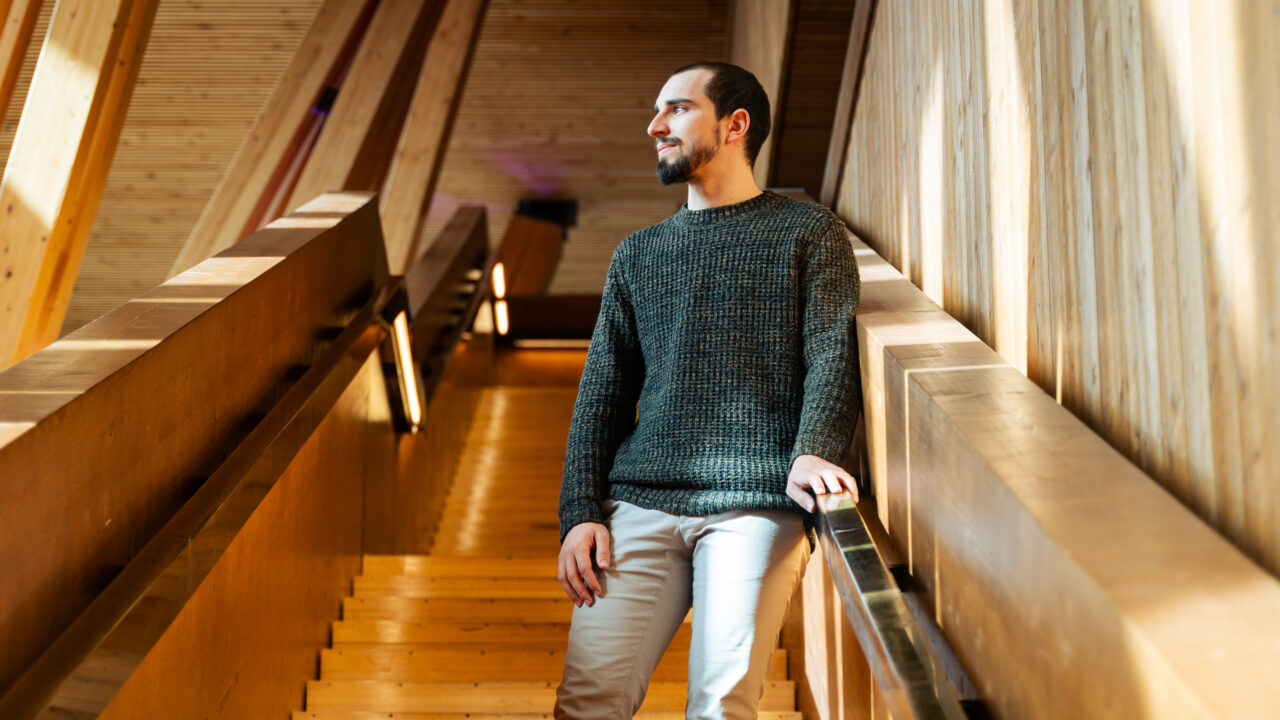
According to Pascual, settling into life in Joensuu has gone well. The only major challenge is finding a job for his wife.
“Our daily life consists of both working and job searching, but otherwise, life is treating us well.”
Joensuu has suited Borja García Pascual and his wife well, especially since they do not crave unnecessary hustle and large crowds. After work, it is nice to take a walk with their dog or meet up with friends.
Currently finishing his doctoral dissertation, Pascual plans to stay in Joensuu with his wife for the long term.
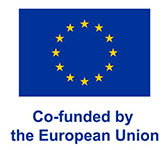
![]()
![]()
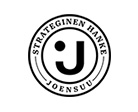
This material was produced as part of the activities of the City of Joensuu Innovation Ecosystem Agreement (ERDF), co-funded by the European Union and the city of Joensuu.
Artificial intelligence has been used in the translation of the article.

